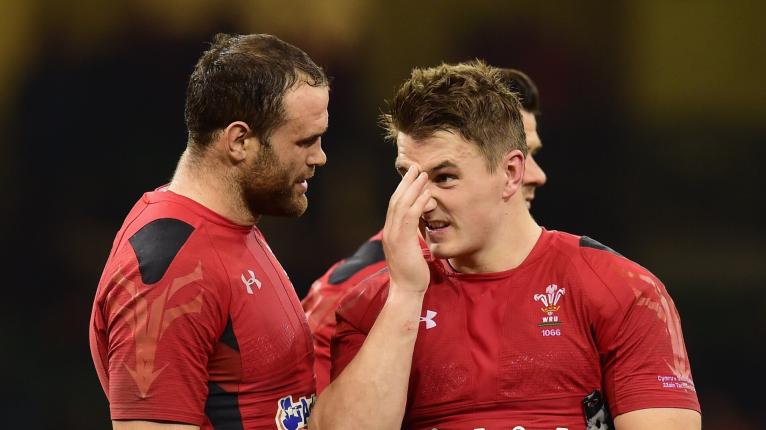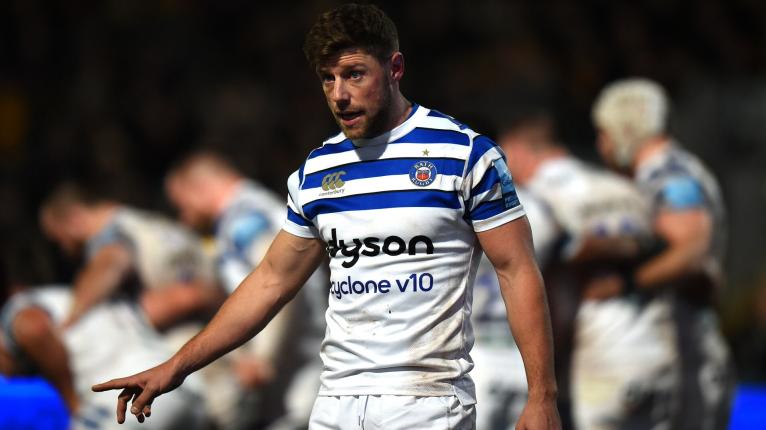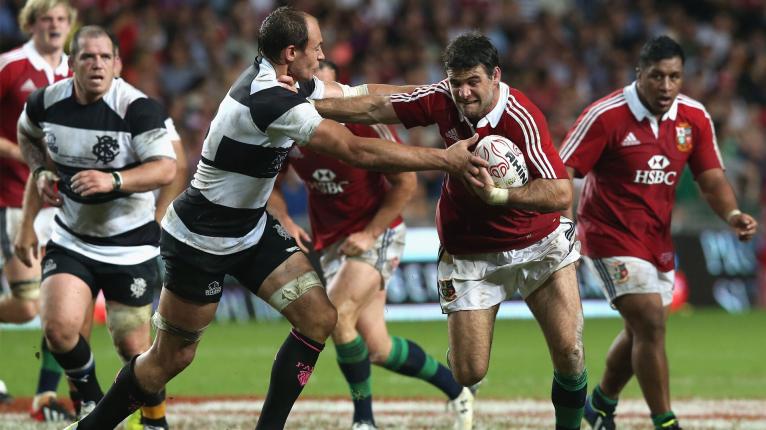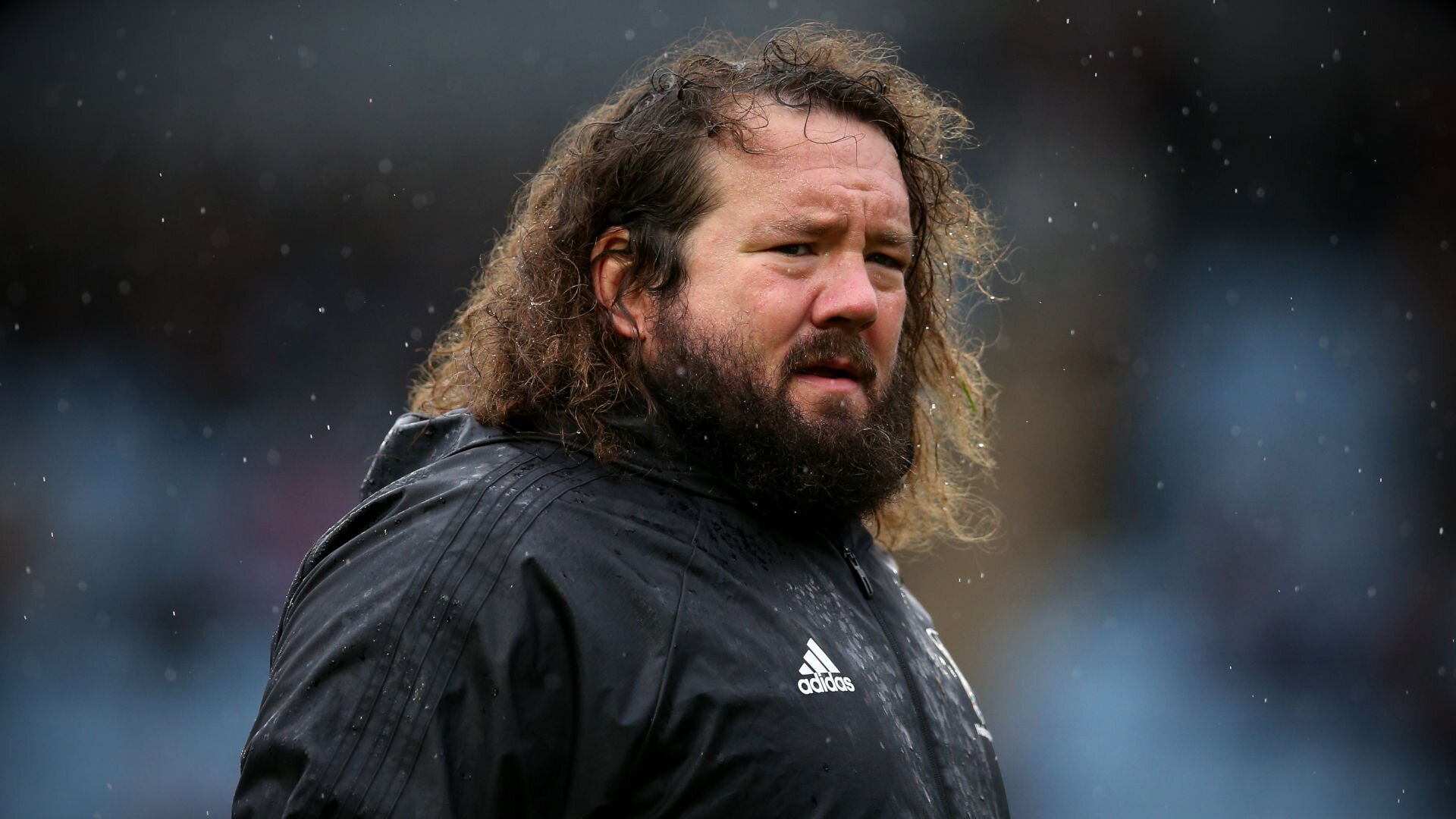Where are they now: the Welsh Grand Slam champions of 2012

Wales entered the 2012 Six Nations in high spirits, after a young squad of players came fourth in the Rugby World Cup in New Zealand only months before.
They showed no signs of a post-RWC hangover, securing their second Grand Slam of the Warren Gatland era, and second in four years, by beating France 16-9 in Cardiff.
WATCH: Marcus Smith took on Tiernan O’Halloran in the first of the last sixteen, in our RugbyPass FIFA Pro’s tournament.
The team that beat France at the Millenium Stadium that March had many faces that are still at the forefront of the international game today, as well as some that have now moved on.
This was a group that would win another title a year later, with some players that have cemented their names a Welsh legends, so here are the players now:
15 Leigh Halfpenny
Winning his 32nd cap against France in 2012, Leigh Halfpenny has gone on to add 61 more for both Wales and the British and Irish Lions, being named the player of the series for the 2013 tour.
Still ever present in the Welsh setup, but has had to contend with injuries along the way, which saw him miss the 2015 RWC and the 2019 Grand Slam triumph.
A Cardiff Blues player in 2012, the 31-year-old has had a stint with Toulon since then, but is now with the Scarlets.
14 Alex Cuthbert
This was the former Cardiff Blues winger Alex Cuthbert’s sixth cap, but he became a permanent fixture in the Wales team over the next four years after 2012. However, he played less frequently after the 2015 RWC, only winning seven more caps, the last of which was in 2017.
The 29-year-old now plays for Exeter Chiefs, having made the move from Cardiff in 2018.
13 Jonathan Davies
Another figure that is still a major feature of the Welsh team, and was surely one of Gatland’s first names on the team sheet, Jonathan Davies has had a career fairly similar to Halfpenny’s. He was winning his 26th cap in the Grand Slam decider, and has also gone on to win 61 more caps for Wales and the Lions, being named the player of the series for the 2017 tour.
Davies has also enjoyed a spell in France, with ASM Clermont Auvergne between 2014-16, before returning to the Scarlets, for whom the 31-year-old still plays for.
Has been absent this season with a knee injury sustained in the RWC, but will undoubtedly be back in the red of Wales next season.

12 Jamie Roberts
Another titan of this Welsh back line, Jamie Roberts has not played for his country since November 2017, but was a force of world rugby across his 97 caps.
The 33-year-old is still going strong though, and has tried his hand at Super Rugby this year with the Stormers, but has also had spells with Racing 92, Harlequins and Bath since 2012.
11 George North
Now sitting on 98 Test caps and 42 tries (95 caps and 40 tries for Wales), George North has also been a mainstay of the Wales starting XV since the 2012 triumph. Incredibly, he was only 19 when Wales secured the Grand Slam in Cardiff eight years ago, although he was already an established international.
Level with Gareth Thomas with the second-most tries for Wales, North will have Shane Williams’ haul of 58 in his sights, and at the age of 27, he has plenty of time to chase that down.
10 Rhys Priestland
Having only made his first Wales start in the August of 2011, Rhys Priestland made the No.10 shirt his own during the RWC, and carried his good form into the Six Nations. This was also helped by Stephen Jones bowing out of international rugby.
But after missing the 2013 Six Nations through injury, Priestland struggled to gain his starting berth back. Despite remaining in the Wales squad until November 2017, many of his appearances were from the bench.

With only 50 caps to his name, the 33-year-old’s Test career looks over, and cannot be revived as long as he continues to play in England with Bath.
9 Mike Phillips
Already a nine-year Test veteran in 2012, Mike Phillips was the most experienced player in this back line.
The scrumhalf would carry on playing Test rugby through to the 2015 RWC, and continued to play for a litany of clubs across France, England and Wales. He finished his career in 2017 with 99 Test caps to his name, five of which were for the Lions.

1 Gethin Jenkins
Wales’ legendary loosehead, and formerly the country’s most capped player, Gethin Jenkins continued to play for his country until 2016, and retired from the game completely in 2018.
He became Wales’ most capped player in 2014, although a title he no longer holds, and the most capped prop ever in 2015. He finished his career with 129 caps for Wales and five for the Lions.
He played over 200 games for Cardiff as well, with a year in the south of France with Toulon sandwiched in the middle.
2 Matthew Rees
Hooker Matthew Rees would go on to play for two more years in a Welsh jersey after 2012, but faced his biggest battle off the field after being diagnosed with cancer in 2013.
Rees recovered and returned to playing, earning two more Wales caps in 2014 and continuing to play for Cardiff until he retired at the end of last season at the age of 38, with 60 Welsh caps to his name and three for the Lions in 2009.
3 Adam Jones
Part of the front row alongside Gethin Jenkins in the 2005, 2008 and the 2012 Grand Slams, Adam Jones was a pillar of the Welsh pack for the first part of last decade.
The scrum master’s 100-cap Test career ended in 2014, as did his long association with the Ospreys, but he had a year with Cardiff before a move to Harlequins in 2015. He hung up his boots in 2018, and now works as the scrum coach of the southwest London side.
4 Alun Wyn Jones
Still going strong, and now only one behind Richie McCaw’s record of 148 caps, Alun Wyn Jones’ influence on Wales has only grown since 2012.
The talismanic lock led Wales to the Grand Slam in 2019, and has now been described by some as the greatest Welsh player of all time.
One of the favourites to lead the Lions in South Africa next year, and add to his nine caps, the 34-year-old Jones may still have a couple of years left in him, but it is not beyond reason to suggest he could still be playing for Wales at the 2023 RWC.
5 Ian Evans
Although Ian Evans did not amass the same number of caps across his eight-year Test career as the other players in this XV, he won a lot in his 33 caps.
A Grand Slam winner in 2008 as well, the lock added a further Championship in 2013, before being part of the large Welsh cohort that travelled to Australia with the Lions.

He earned his last cap in 2014, shortly before a move to Bristol from the Ospreys, where he played the rest of his career before retiring in 2017 at the age of 32 as a result of knee problems.
6 Dan Lydiate
The player of the tournament in 2012 and colossus in defence for Wales, Dan Lydiate would surely have many more than his 67 caps if he had not had so many injury issues.
The blindside flanker was a regular for Wales from 2010 to 2016, even being named captain under Gatland, but has only managed to play four matches for his country since 2017, the last of which was in November 2018.
The 32-year-old has suffered from knee, shoulder and bicep injuries to name a few, but has remained fit this season after missing the majority of the year before, and recently signed a new deal with the Ospreys.
7 Sam Warburton
Flanker Sam Warburton was the youngest player to ever captain a RWC side in 2011, and became Gatland’s leader for the coming years, guiding Wales to the 2012 and 2013 titles, as well as the Lions to a series win in Australia and a draw in New Zealand.
However, much like Lydiate, he spent far too long on the sidelines, and the harrowing list of injuries he had endured throughout his career finally took its toll in 2018 when he announced his retirement at the age of 29.
It was ultimately a neck injury that he struggled to return from, but that may have been the straw that broke the camel’s back for Warburton. Nonetheless, he goes down as one of the great Welsh and Lions captains, and his record in charge speaks for itself.
8 Taulupe Faletau
Unfortunately, the third member of this back row, Taulupe Faletau, has not been without his injury problems either, although he has probably fared the best of the three.
The No.8 seemed to barely miss a match for Wales before his move to Bath in 2016, but he has since suffered multiple broken arms and knee injuries, and a broken collarbone which ruled him out of the 2019 RWC.
The 29-year-old returned to the Test stage this most recent Six Nations, and is working back to the form that made him one of the very best No.8s of the last decade.
Bench
From the bench, Paul James, Luke Charteris and Ryan Jones have all since retired and James Hook is set to retire at the end of the season. Ken Owens remains the only regular performer for Wales, with Lloyd Williams earning his last cap in 2016, although Scott Williams only just failed to make the 2019 RWC.
16 Ken Owens
17 Paul James
18 Luke Charteris
19 Ryan Jones
20 Lloyd Williams
21 James Hook
22 Scott Williams
When looking at this XV, it is understandable why Wales were able to perform at a high level throughout last decade, as nine of that squad are still playing today. Moreover, five of them have played for Wales over the past year, and ten of them have played since 2017.
The same core group of players has meant that there has not been a huge lull in Welsh rugby. In contrast, the French team that won the Grand Slam only two years before Wales in 2010 was nearing a time of mass overhaul (even for France’s standards), which helps explain why they have struggled so much over the past ten years.
Of the starting XV against France in 2012, only four started in the Grand Slam decider in 2008, and only two more players were in both squads. This shows the change that happened over those four years, and how this Championship, and the RWC showing in 2011, was to lay the foundations of more success over the rest of the decade.

























